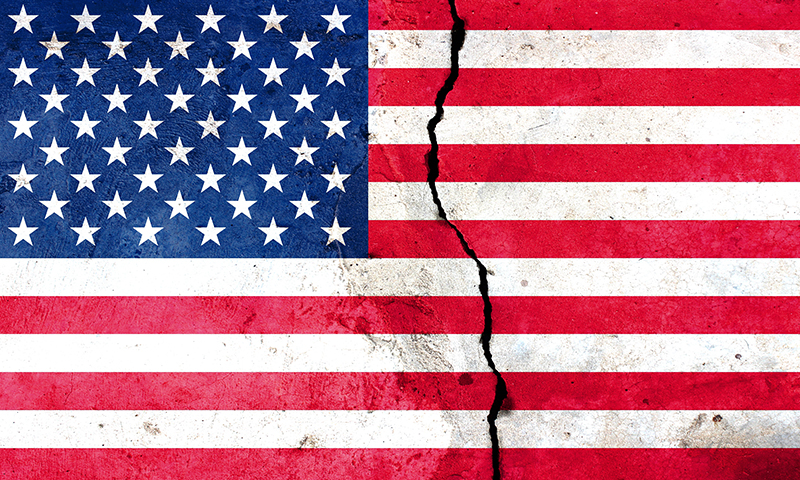Water Cooler: Marketing Leaders And Consumers Divided Over Promoting National Unity

howcolour / Koldunov / Zbitnevf / Shutterstock.com
Marketing leaders today are divided in their belief as to whether marketers have a social responsibility to promote national unity, according to the results of the 26th edition of The CMO Survey, published by the American Marketing Association. The survey, released in August—with input from 282 marketing leaders across 16 industries—showed that marketers don’t necessarily believe that companies should be using marketing as a tool to promote national unity, despite the current climate. A stark difference in opinion was particularly noted between conservatives and liberals, and also between Gen Z, Gen X and baby boomers.
The largest group of respondents (22.8 percent) said they believe it is “not at all important” for companies to use marketing to encourage national unity. In a separate question, when marketers were asked about the extent to which their companies’ marketing activities were being used to encourage national unity, 57.4 percent said “no activity” while only four percent said, “a great deal of activity.” According to the AMA, some of the ongoing issues of concern for marketers are coronavirus, misinformation about the coronavirus vaccinations and deliberations about business re-openings, as well as police violence targeting African Americans, the rise in hate crimes against Asian Americans and controversies surrounding the presidential election.
To follow up on these results, AMA conducted two smaller surveys involving 127 U.S. consumers and 55 MBA students attending Duke University’s Fuqua School of Business, which asked the same questions. The results showed that for both consumers and MBA students, the average score was 4.3, also in the middle, concerning their beliefs on companies using marketing to promote national unity. Compared with marketing leaders, consumers and students were less polarized with only 9.3 percent stating “it was not at all important” compared to 22.8 percent of marketers, however, nearly 40 percent said they didn’t believe companies should use marketing to encourage national unity.
In such a tentative climate, AMA reports that companies can respond most effectively by looking at how the message of unity fits into their brand. Each company has its own history, dedicated causes, target consumers and competencies, AMA explains, and this undoubtedly must be factored into marketing messages and alongside promotions of national unity—if companies are doing such. For companies that do intend to integrate messages of national unity into their marketing, AMA offers four suggestions.
- Be authentic. Like any other cause, a message of unity is better backed by action. Along with strategic messaging, brand involvement in causes to support U.S-based and focused efforts, such as nonprofit work, will help solidify this message to consumers and help them understand why you’re pushing it.
- Align efforts with customers’ needs. Understand what customers are looking for from your brand, how your brand can help them to achieve their wants and needs, and also how they feel about unification—do they see it as something that currently brings people together or does the opposite? This will help you to understand how they may receive brand messaging and efforts.
- Study future prospects. Each generation has its own set of values that are important to them. AMA explains that millennials and Gen Zers expect brands to speak out more on causes than Gen Xers and baby boomers do. The same holds true for people of different backgrounds and can consider all sorts of variables which separate one person from another.
- If your decision is not to promote unity, consider whether that’ll be detrimental. AMA suggests that marketing leaders who decide not to include messages of unity should ask themselves questions such as: Will it hurt the company, brand image and bottom line if a competitor decides to financially back a cause? Will presumed inaction send a message to current or prospective employees? Will this have a negative impact on the workplace?
––––––––––––––––––––––––––––––––––––––––––––––––––––––––––––––––––––––––––
Danielle Renda is associate editor of PPB.

